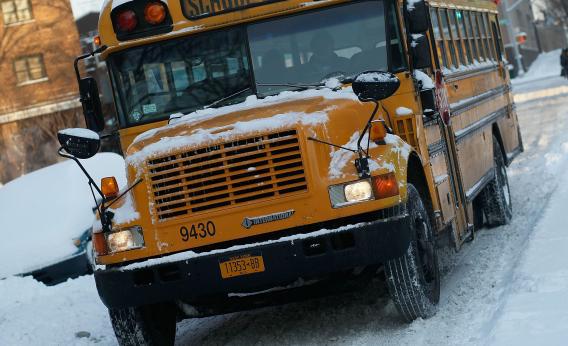KJ, my knee-jerk reaction to your post on the NYT debate over whether students should have longer school days was, “No! Of course not. That’s crazy!” (I happen to like seeing my kids for half their waking hours. Most of the time.) Then I pondered the possibility that soccer and swim team and baseball could be wrapped into that longer day instead of being targeted for the dinner hour (meaning that, even with kids ages 8 and under, we eat dinner as a family only on the weekends) and I started seeing long evenings playing in the yard, or reading books together, or building ridiculously complicated and overpriced Lego sets, and my opposition softened.
But after thinking about it some more, I don’t know if there is a better answer than the NYT contributors’ consensus of “maybe, but.” I agree with you that there is no single answer (or, as you better put it, a single question). Different communities have different needs. Our district offers an “extended day” program, which is essentially afterschool child care for working parents. We have no need for it, so I don’t know much instruction or play time is involved, but we live in a middle- to upper-middle class suburb, so it’s something that many parents can afford. Programs—and funding for them—should indeed be focused on communities that need them, and tailored to those communities.
To me, the biggest question is, what about the teachers? To extend the school day or school year, we’ll need to pay them more. In Ohio, where I live, and many other states, that would mean asking voters to pass levies that would increase people’s property taxes, during a time when property values are already hurting and people aren’t inclined to pay more in taxes. And we’d need to worry, assuming there was not a nationwide decree for longer days, that teachers would leave districts with such long hours for districts that didn’t. Former Ohio Gov. Ted Strickland proposed adding 20 days to the school calendar, and this was his attitude toward teachers who didn’t like it: “If a teacher says I’m going to teach in Kentucky instead of Ohio because the school day or school year is longer in Ohio, I would say to them I hope you enjoy Lexington or Louisville or Hazard or wherever you go.” That kind of attitude is dismissive to hard-working teachers—and my state already loses up to half of its new teachers in the first five years of their careers—as well as parents who live in districts that might be affected.
One thing I didn’t see the education experts weigh in on extensively was maximizing children’s time when they are in school. (Kathleen Porter-Magee, a former teacher, did raise the question but went in a different direction than I’m thinking.) Children learn at different paces, and as such have different needs. I would like to see more emphasis on tracking students’ progress and letting them learn at their own pace than focus on extending the school day for everyone. For example, my second-grader is bringing home math homework that is remedial not only to first grade, but to kindergarten, and the approved library books he can borrow are picture books, whereas at home he’s reading chapter books. If longer school days are just teaching more of the same, no thank you. Save the extra time and resources for the kids and working parents who need it.
